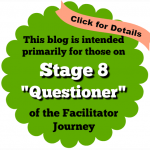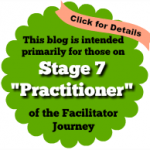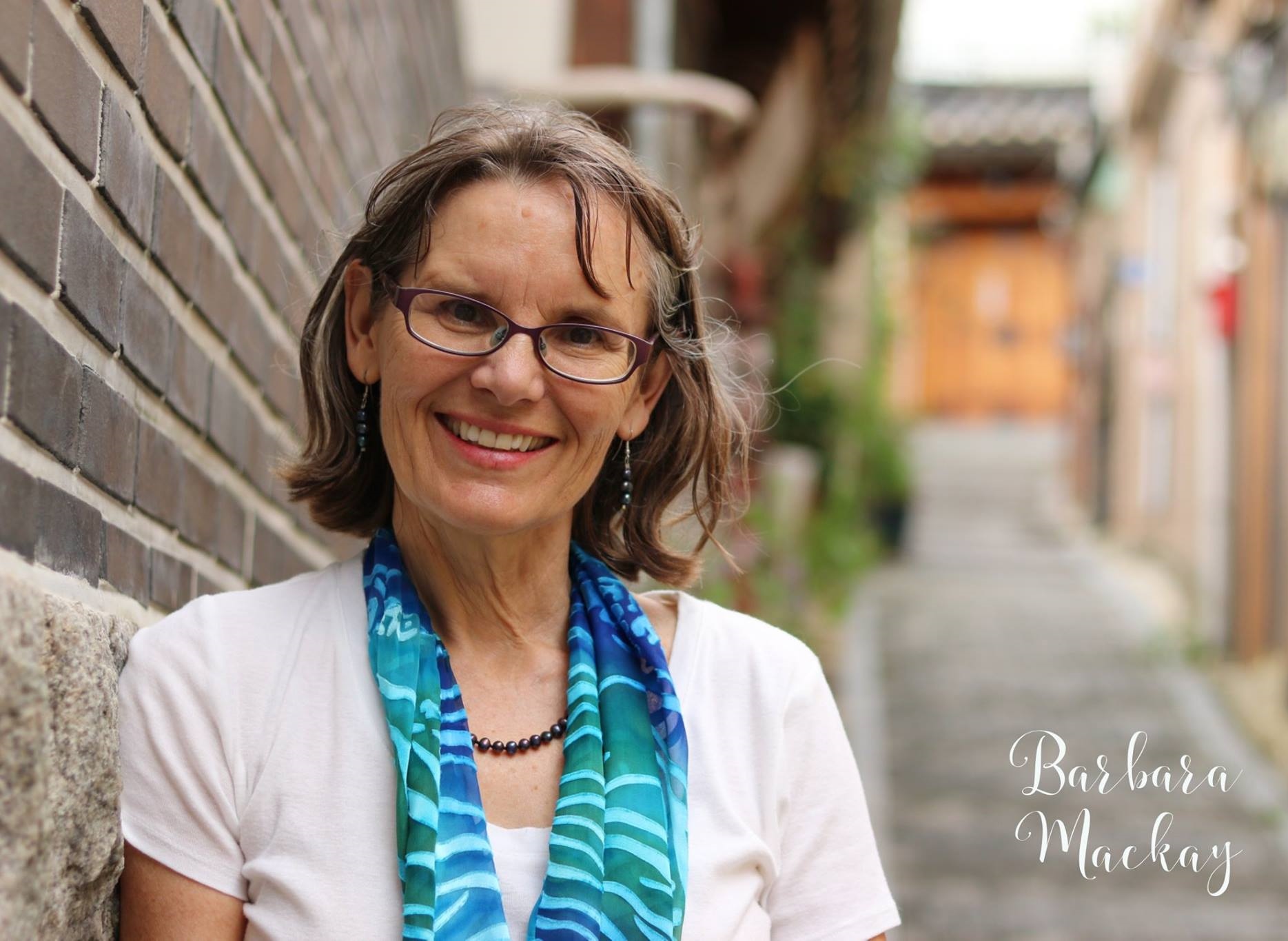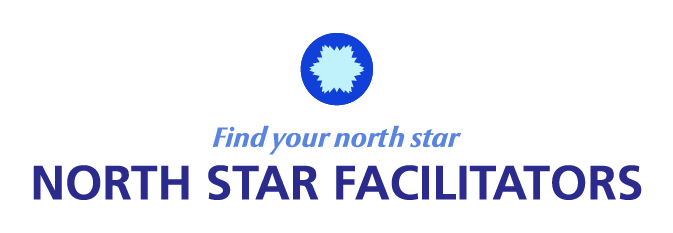Using Insight Dialogue Method to Facilitate Difficult Topics (Such as the Israel-Hamas War)



 Recently I had the honour of facilitating using the Insight Dialogue method on the topic of the Israel-Hamas war. We were a group of peer facilitators who had worked together for many years. It was a profound experience and gratifying to see how well we did as a group. This blog is to help you consider how you might also lead a dialogue amongst peers, friends, family or colleagues on very difficult, gut-wrenching, controversial subjects.
Recently I had the honour of facilitating using the Insight Dialogue method on the topic of the Israel-Hamas war. We were a group of peer facilitators who had worked together for many years. It was a profound experience and gratifying to see how well we did as a group. This blog is to help you consider how you might also lead a dialogue amongst peers, friends, family or colleagues on very difficult, gut-wrenching, controversial subjects.
The creator of the Insight Dialogue method is by Gregory Kramer. He is a Buddhist instructor and practitioner and wrote the book of the same name “Insight Dialogue – the Interpersonal Path to Freedom”. Gregory helps us understand the principles of mindfulness as applied to complex dialogue and relationships. We also offer some reading at the end. Our hope is to enlarge your understanding of this specific war and the generalities of the Hero’s Journey (Joseph Campbell) that we are all on with this and other devastating world events.
The Steps:
A few notes are offered along each step below. They are Gregory’s words but I have changed them a bit based on my own experiences and practice. To start this dialogue on the Israel-Hamas war, I read and paraphrased sections of each step to the group before we began. We started with Gregory’s first three steps before even beginning: pause, relax and open. Here is an audio recording of my brief instructions of the six steps:
Overall, it is good to think of these steps as being both internal and external. You might allow and encourage yourself to notice both your internal reactions but also note what is happening in the external environment. This applies to you as either the facilitator or a participant.
- Pause – pay attention to how it feels to release clinging. Notice the quality of your thoughts without identifying with them. Stepping out of the mind storms that typically occupy us, we find a wakeful and vibrating silence. The mind feels steady and awake and clings less and less to any particular outcome.

- Relax – notice as relaxation and acceptance becomes steadier and steadier. Let this acceptance ripen into love both for your own thoughts and emotions and for others in the group. If you encounter aversion or a “pulling away”, just relax into it. Accept it, soften and invite kindness to arise when you can. Notice others whether they are speaking or in silence. Fear and withdrawal are conditioned responses. When we notice them and meet them with relaxed interest, they will soften and change.
- Open – to what the body feels like sitting on a chair. In habit your body. Even if there is discomfort in your body, rest there with openness. After a bit, expand this neutral awareness to your external environment (sounds, sights, smells) and attempt to view it lightly with openness.

- Trust Emergence – invite yourself to release any plans for the day or expectations for this discussion. Let go of your own agenda. Perhaps you feel pain associated with fear of change. Drop the burden of trying to control things. Meet others in the spirit of not knowing. You do not know what will emerge. Stay curious. Notice that your own sensations are constantly changing. And the same will be true of others. Notice the impermanence of the speaking voice. It arises and it falls away.

At one point in our conversation, a group member said they were not comfortable with speaking for a set number of minutes each (I had suggested this given our time was down to 35 minutes). They explained that they may not want to say anything but just listen deeply. I realized this was exactly “Trust Emergence”. So we agreed to let anyone speak for as long as they needed.
- Listen – pay particular attention to several layers to what is being conveyed. Attend to the meaning, specific words and phrases, the tone, to pitch and loudness. Notice cracks in their voice or the pauses when they may be searching for words or overcome with emotion. Watch meaning unfold in your mind. Watch your emotions. Begin to notice that sometimes you are listening with “razor-focus” and other times, you are listening with expansiveness.

- Tell the Truth – the basics include “don’t lie”. I might add for myself don’t exaggerate. There is no pressure to say anything you do not want to say. Speak with non-cruelty, and good will. Even difficult things are said with goodwill. This is subjective, not absolute truth. As understanding enlarges, our truth changes too. It is a challenge to speak with mindfulness. Notice the rise and fall of thoughts before you speak. Imagine you are hiking a tricky trail and area paying step by step attention.

Suggested Guidelines:
Here is what our group came up with for dialogue guidelines. This part of the discussion took about 10 minutes.
- Don’t make assumptions about anyone
- Remember it’s complicated
- Many emotions may arise – know they are difficult to process
- Seek the truth
- Practice non-judging
- Allow for people to enter the conversation knowing a lot or knowing a little
- The outcome of the conversation does not necessarily involve a “fix” or decision
- Hold everyone as competent and able to meet their own needs. They do not need to be taken care of
- Be responsible to yourself
- Be able to say “I need help” or ask others “what kind of help would be beneficial right now if any?”
- Be able to ask for a pause and say “I am not comfortable”
- Review and add to guidelines as needed throughout the conversation.
Outcome and Next Steps:
There was no need to have an outcome. We clearly could not solve the war nor figure out what to do about it. Yet, there was relief that we could talk about this and feel relatively safe. We also acknowledged that it has been hard to have conversations with acquaintances and colleagues because so many have made up their minds in a hard and fast manner.
In my own city of Victoria, BC, Canada, the weekly most visible protests have been entirely pro-Palestine. I watch with mixed emotions as I know now, it is a changing, long, complicated and heart-breaking story for both Jews and Palestinians. And, as a facilitator, I strive to maintain compassion and openness.

We were hopeful enough at the end to consider another insight dialogue session on the Israel-Hamas war. We noticed that war has many layers to it. It brought up things that were not about the specifics of this war. in a sense, it brings us to ponder so many other aspects of life: e.g., having a homeland; having & creating safety; having support; knowing how to support others; political regimes we do not agree with; activism in the face of hopelessness, etc. We knew we would view this differently now – with more spaciousness.
If you have been having dialogues about this or other gut-wrenching topics, how have you approached it? If you try this Insight Dialogue technique, how did it go. Please let me know at bmackay@northstarfacilitators.com.
Resources
Here are some resources mentioned our group had been discovering on Israel – Hamas war that are worth delving into. If you cannot open the links because you do not subscribe to e.g., the New York times, try doing an internet searchon the title or the author and other sites will have it:
Ezra Klein podcast: The Ezra Klein Show – The New York Times (nytimes.com)
- Opinion | How My Conversations on Israel-Gaza Have Shaped My Thinking – The New York Times (nytimes.com)
- Opinion: | A Different Path Israel Could Have Taken — and Maybe Still Can – The New York Times (nytimes.com)
There are many more – just a sampling here!
Nicholas Kritstof (the NY Times – opinion)
- Opinion | Israel, Gaza and What We Get Wrong – The New York Times (nytimes.com) or,
- Opinion: We are complicit (MSN)
- Opinion | Were My Criticisms of Israel Fair? – The New York Times (nytimes.com)
Also just a sampling!
Thomas Friedman NY times columnist (note: some controversy going on with him now)
- Opinion | The Israel-Hamas War Was Not Inevitable – The New York Times (nytimes.com)
- Opinion | Understanding the True Nature of the Hamas-Israel War – The New York Times (nytimes.com)
Two novels helpful in imagining some of the feelings of those enmeshed in this conflict:
- The Postcard, Anne Berest
“…a vivid portrait of [early] twentieth-century Parisian intellectual and artistic life, an enthralling investigation into family secrets, and poignant tale of a Jewish family devastated by the Holocaust and partly restored through the power of storytelling.” (Goodreads)
- Enter Ghost, Isabella Hammad
“…follows actress Sonia as she returns to [Israel and] Palestine and takes a role in a West Bank production of Hamlet.”
And if you want to be reminded of the hero’s journey, which this situation is, a few other resources below.
In the hero’s journey, we have an unusual circumstance that causes us to enter the underworld. In this underworld, we are fighting our enemies, and we meet allies. Eventually we emerge changed and stronger. So I ask? When will we emerge as a new brave collaborative world where we do not kill or terrorize each other under any circumstances? When will we naturally and without equivocation, seek to understand each other’s perspectives, and find peaceful solutions to share love, resources, land and wealth?
- https://www.scientificamerican.com/article/to-lead-a-meaningful-life-become-your-own-hero/
- “A Hero’s Journey” – A Model to Help Groups Through Big Change – North Star Facilitators
And of course, because of my Insight meditation practice, you may wish to search on “Buddhists on the Israel-Hamas war”. Although this article was written in 2021, it shows us this has been going on for sometime and the perspective is really the same today.
An Israeli Buddhist Wonders, Do We Really ‘Have No Choice?’ – Tricycle

